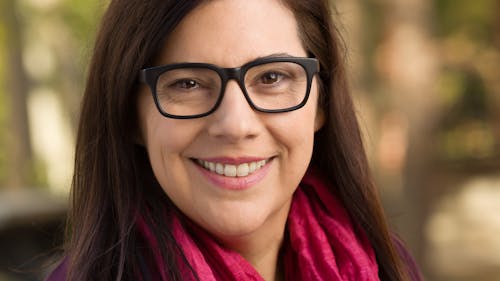Rutgers professor testifies before Congress about climate change

Dr. Pamela McElwee, associate professor in the Department of Human Ecology, testified before the United States House Committee on Science, Space and Technology about climate change on Jan. 15.
The hearing, McElwee said, was the first climate hearing of 2020 and will likely happen annually. Last year, Rutgers University professor Robert Kopp also testified before the committee on climate change.
“They do this to give members on the committee a chance to understand major reports that have come out, what’s the current thinking on climate science, is there anything new that they need to pay attention to,” McElwee said.
McElwee testified on climate change impacts on land based on a recent report from the United Nations (U.N.), while three other scientists testified about the world’s oceans and frozen areas as well as a recent U.N. report on greenhouse gas emissions.
“One of the ideas that came up at the hearing a lot was this idea that it’s going to be really expensive if we want to tackle climate change,” McElwee said.
“People sometimes use that as an excuse for inaction. They say it’s going to hurt our economy so we shouldn’t do it but that’s really the wrong way to look at it. You’re comparing cost of action to not having to pay anything now," she said.
"We are paying something now and that’s the damages. Insurance companies are paying out when there’s extreme events, the rest of us are paying in health care costs due to illnesses related to climate change like heat stroke or increasing cases of asthma.”
While the science committee doesn’t have the same policy or legislative writing power as other Congressional committees, McElwee said their job is to provide funding and understand the priorities for science research in the United States.
“I don’t expect to see tangible policy outcomes but those of us who testified did talk about some major research gaps, so now that they’re identified and brought to the attention of the committee (the gaps) might be the focus of additional funding,” she said.
McElwee said her testimony focused on methane, which is a significantly stronger greenhouse gas than carbon dioxide.
“You can remove it from the atmosphere and get a really strong impact if we tackle that sector of emissions. But we have some science questions about where these methane emissions are coming from,” she said.
Methane emissions have increased over the past decade and they may be a byproduct of the fracking of natural gas, fossil fuel exploitation or natural sources warming in response to climate change, McElwee said.
The research could impact the Paris Agreement, a major international policy that urges countries to tackle greenhouse gas emissions. The agreement, she said, doesn’t have standards that reflect the increase in methane emissions.
“It’s really important we understand what those emissions are, where they’re coming from, what countries are most responsible and then scientists can help advise people working on the Paris Agreement whether we need to ask people to make stronger cuts in methane emissions once we figure out where these are coming from,” she said.
McElwee said the scientific community supports reducing greenhouse gas emissions and eventually zeroing out fossil fuel emissions. She said while there is a sense of urgency for the Democrats on the committee, the Republicans are not as concerned. She said it is unclear what sort of policy response this divide could result in.
“How you actually (reduce emissions) is really a question not so much for scientists but for political scientists, its for economists, it’s for lawyers to figure out,” McElwee said.
“What are the practical and doable, workable policies that would get us to that zero greenhouse gas emissions? That’s not a scientific problem, that’s actually a political problem.”
On an individual level, McElwee said we can each help as much as we can, but in order to make real change, there needs to be collective action.
“We need institutions like Rutgers University to have a comprehensive greenhouse gas reduction plan, we need institutions like the state of New Jersey to set up the infrastructure so we can have electrical vehicles if we want them, we need more charging stations, so those only come about through institutional change," she said.
"As individuals the things that we can do by ourselves are limited but certainly we can lobby and vote and use political pressure to get those institutions to do the things that need to be done."



